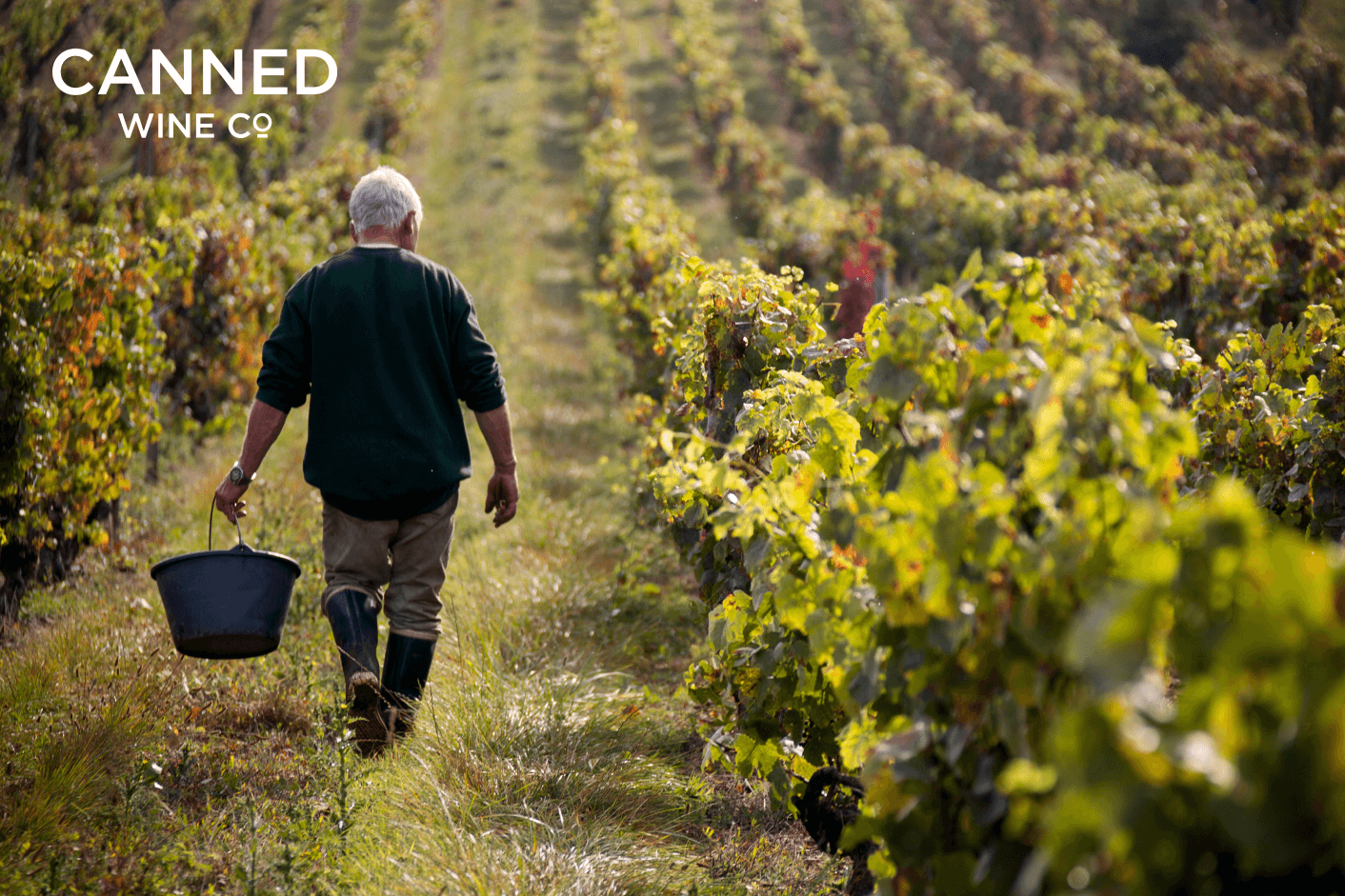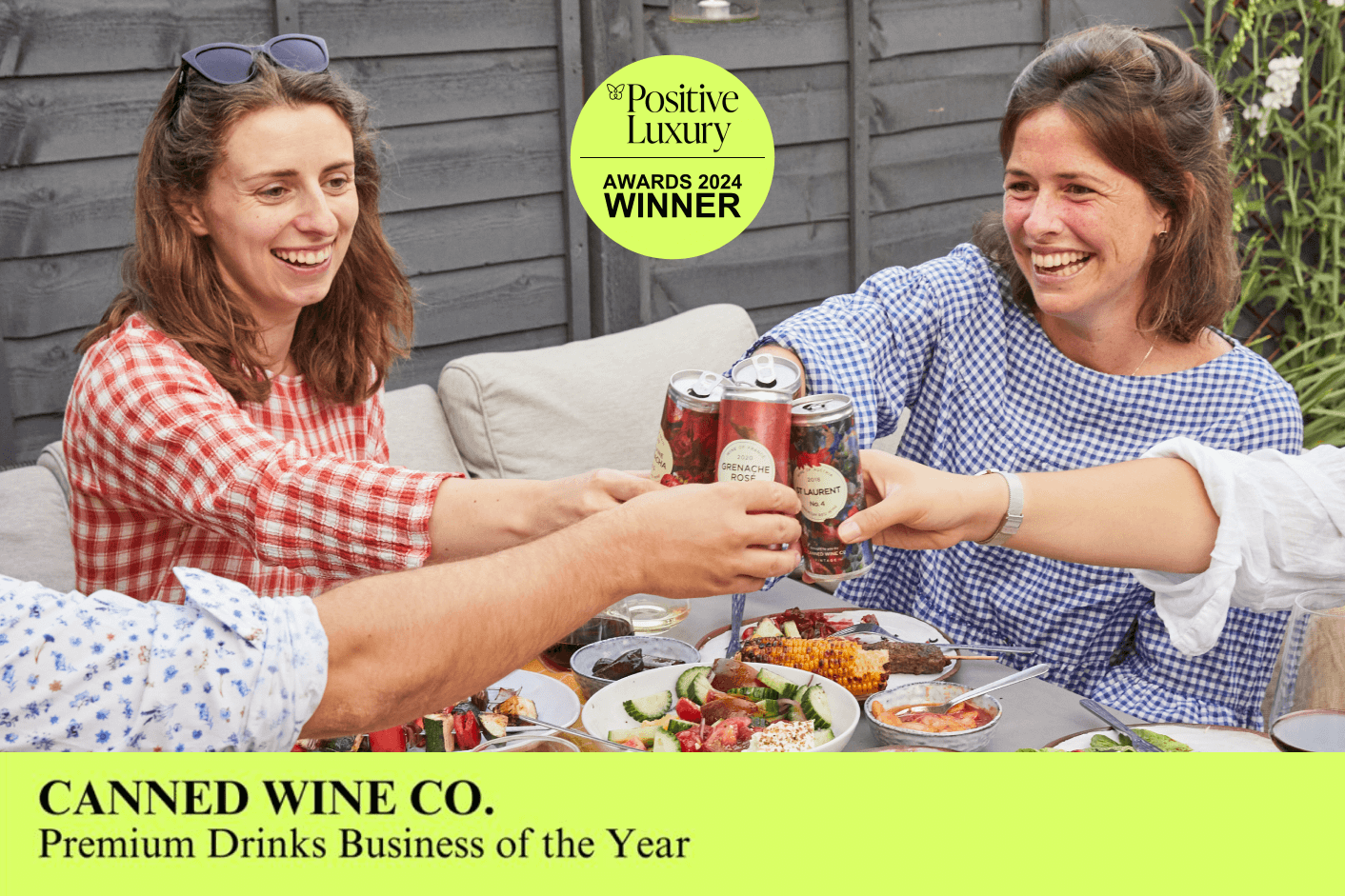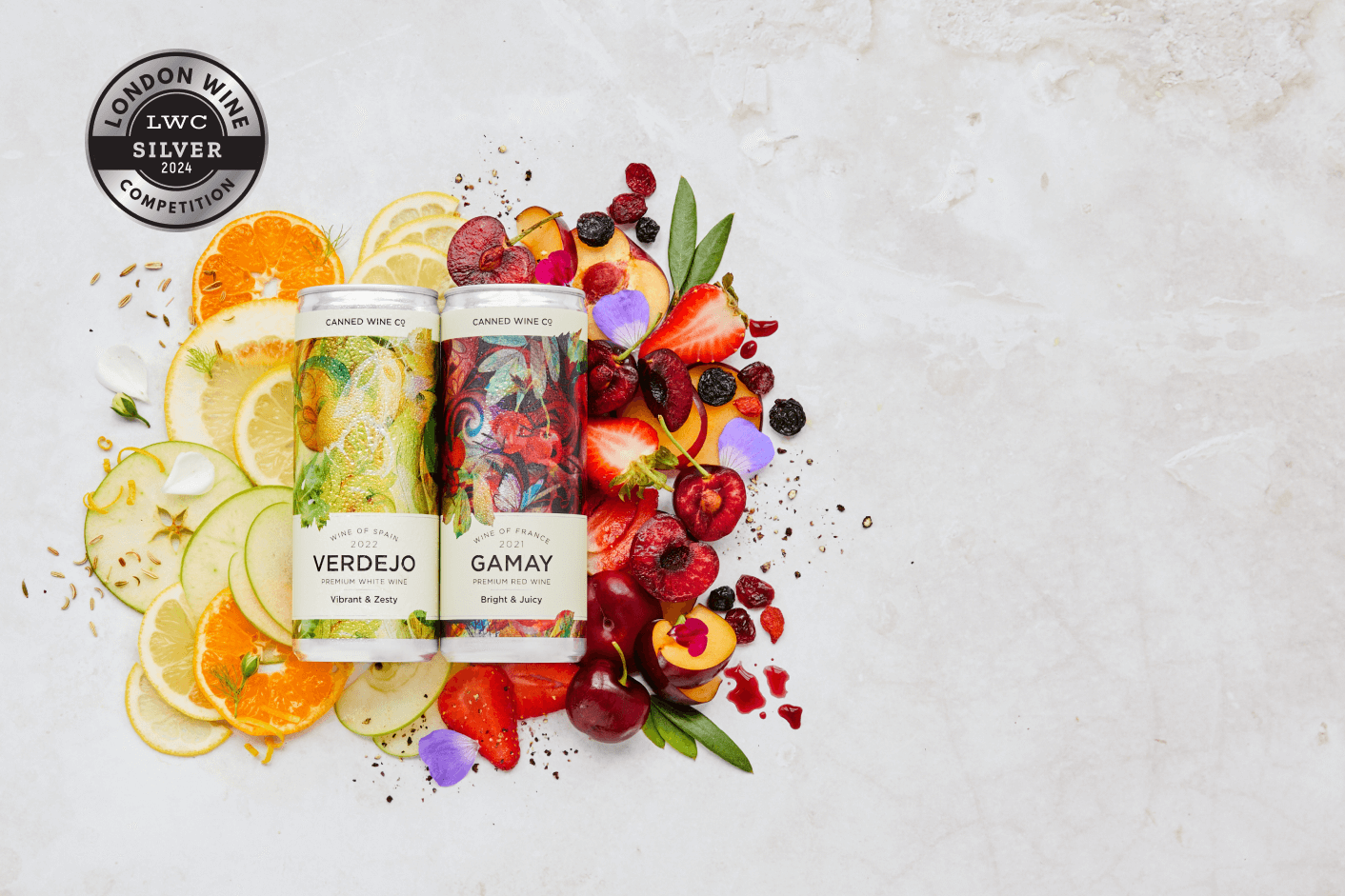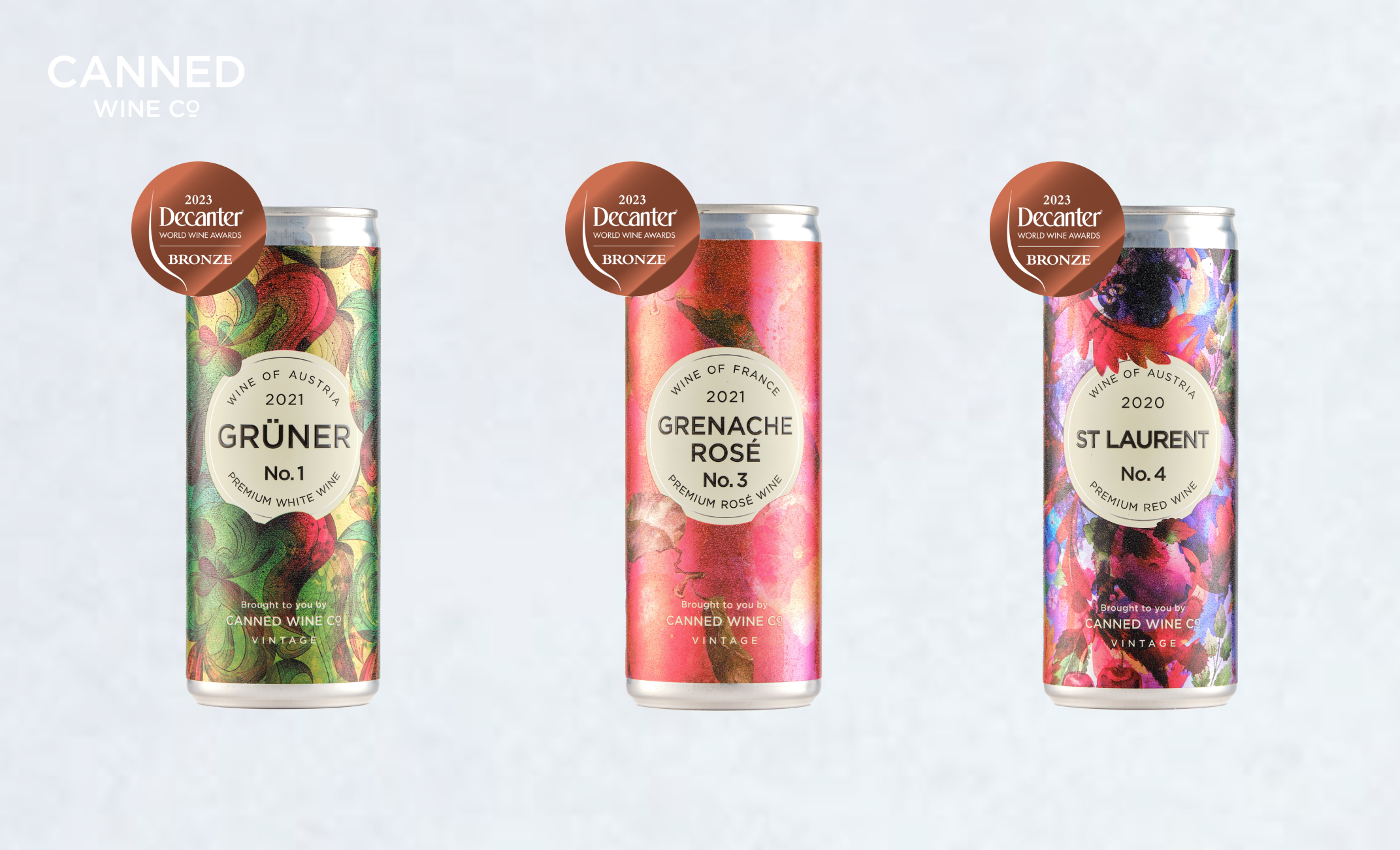Written by Marieke Hammes - Sustainability & Operations Manager
Our Grüner, St Laurent and new Viognier are all from organic wineries. To be able to label this, Canned Wine Co. had to undergo certification with the Soil Association as well. As of last week at London Wine Fair, we now offer our first organic-labelled wine, a Viognier from the Languedoc. However, there are concerns across the industry questioning whether organic actually equals sustainable. To explore this, Canned Wine Co. brought together a panel with different stakeholders along the wine supply chain: Master of Wine and winemaker Norrel Robertson (El Escocés Volante, ES), agronomist and winemaker Mélanie Maurin (Famille d’Exéa, FR), technical consultant Jenny Bond (Grape to Shelf Consulting) and wine buyer Ben Franks (Canned WIne Co. & Novel Wines).
Before discussing the guiding question and panel highlights, let’s review what organic agriculture stands for.
Organic Principles:
Organic farming is based on four key principles
- Health: Sustaining & enhancing health of soil, plant, animals and humans
- Ecology: Working with & sustaining living ecological systems and cycles
- Care: Precautionary & responsible protection of health and well-being of current and future generations
- Fairness: Common environment & life opportunities
Organic philosophy aims to minimise the disruption to the environment and maintain healthy soils. On the positive side this can increase carbon sequestration per hectare of land compared to conventional agriculture and foster biodiversity, especially insect populations.
Applied to the wine industry, the organic standards:
- Limit the sprays allowed in the vineyard
- Allow the use of copper sulphate sprays to fight disease pressure
- Limit the use of additives and processing aid
- Limit the level of total and free sulphur dioxide
Can Wine be Both Organic & Sustainable?

For Norrel Robertson MW, organic practices and their success are dictated by disease pressure and location. “If you’re in the right climate, there is no excuse not to be organic”. He practices organic viticulture to ultimately have a higher quality product with more careful inputs. However, sustainability must be holistic – for the environment, for the producer and the employees, financially sustainable as a business and for the local economy, as well as environmentally and economically sustainable for the end consumer.
For Mélanie Maurin, “organic is the basis, […] you cannot be sustainable if you’re not organic”. However, organic is only one dimension of sustainability, with more efforts needed for specifically improving biodiversity, reducing energy consumption, or addressing consumption habits. At Famille d’Exéa, the team also takes a more holistic approach to sustainability, utilising cover cropping, agropastoralism, drought-tolerant grape varieties, dual water networks in the winery and carbon reduction measures additionally to the organic standards.
Technical consultant Jenny Bond, who has audited and visited hundreds of wineries across different climatic regions, is more sceptical of organic certification. “Organic doesn’t necessarily mean better. […] Organic is focused on one segment, sustainability is the whole package.” Her main concerns are the restrictive tools allowed under the certification, as well as the permitted use of copper sulphate to combat mildew and rot, as this metal accumulates in the soil and – contrary to organic philosophy – kills biodiversity. According to the European Chemical Agency, copper sulphates are classified as toxic and carcinogenic. More frequent tractor usage from having to spray more often further increases the risk of soil compaction, leading to issues of rainwater runoff and lower earth worm activity in the soils. Organic vineyards often have an increased use of mechanisation because the use of treatments is preventative, rather than reactive. That also means treatments are used more universally in the vineyard and can be less surgical.
Decanter award-winning wine buyer Ben Franks believes “organic inspires the right kind of thinking”. The mentality of organic can push winemakers to work in tandem with the vine, thinking more carefully about inputs, the relationship between the vine and soil, and terroir. However, there is the risk to become a tick-boxing exercise that - within the framework of limitations - fails to innovate in the most sustainable way available to them. Concerns over the use of copper sulphate are further amplified when canning wine, which requires low copper levels.
Holistic Thinking is Necessary
As one can see, there are many nuances in the conversation that need to be considered when analysing whether organic practices are compatible with sustainability. All panellists agreed that a holistic approach to sustainability is paramount.
For Norrel Robertson MW, organic fits into regenerative thinking, which is the certification El Escocés Volante is ultimately striving for. This includes looking at local solutions and resources to improve vineyard longevity and health, such as local sheep manure, biochar from vineyard cuttings and water retention trenches. Famille d’Exéa is also looking at other certifications (e.g. Planet Score or HVE) that certify practices not covered by organic, such as agroforestry.
Especially in times of climate change and interdependent environmental challenges, the pressure to holistically look at sustainability intensifies. Jenny Bond noted that “organic is not going to feed the world”. Rising temperatures and extreme weather events are increasing unpredictability in vineyards, making it more challenging to be organic. The tools allowed under organic practices may be too restrictive and jeopardise the financial sustainability of wineries in difficult years.
Part of looking at sustainability holistically is considering innovative approaches, such as researching more into vines that are more heat-, pest- and disease-resistant. At Famille d’Exéa, Mélanie Maurin already works with drought- and disease- resistant varieties Muscaris, Soreli and Souvignier Gris, which allows the reduction in tractor usage as they only need one treatment to maintain their resistance.
Another aspect that organic does not consider in their standards that are impactful for the sustainability of wine are the transport and packaging of wine. As all panellists noted, neither packaging nor water and energy use are included in the organic certification. The Wine Society’s recent alternative packaging report stated that the glass bottle contributed 31% to their organisation’s carbon footprint, with another 21% linked to shipping bottles. Bulk shipping and canning/bottling close to market can therefore create considerable environmental benefits, independent of organic status of the wine.
Should Wineries Certify as Organic? Why Or Why Not?
As wine buyer, Ben Franks does not require wineries to be organic, as his decisions are based more on quality and the overarching sustainability assessment. Even for the end consumer, the organic wine is just one part of Canned Wine Co.’s sustainability strategy, with packaging being influential too.
For Norrel Robertson MW, there is now more commercial pressure to certify and label, despite his winery following organic practices since 2014. El Escocés Volante is currently undergoing the three-year transition period.
However, there was consensus on the panel that end consumers do not necessarily understand the complexities of organic standards, instead preconceiving that organic wine is more natural and automatically better for the environment. Jenny Bond reiterated that the sustainability of organic are very site- and climate-specific. Therefore, certifying as organic makes sense for one winemaker, whereas it would have negative environmental consequences in another climatic condition.
The sentiment that being non-organic can be more sustainable as more tools are available was shared by the Sustainable Wine Roundtable’s panel discussion a few days later at LWF on “How can non-organic viticulture be sustainable?” with current organic practices unlikely sufficient to reach sustainability at scale.
Do Certifications Hinder Sustainable Innovation?
Alongside the panel preparations, a question that repeatedly came up in Canned Wine Co.’s discussions is whether adhering to strict certifications hinders resources and research being deployed to becoming more sustainable. We are increasingly feeling the burden of compliance, which is especially apparent in a start-up where everyone is already juggling many responsibilities and projects.
For example, certifying as organic has led to frustration about the seemingly illogical requirement that our bonded warehouse storing packaged and palletised wine has to be certified as organic as well. Would the many hours and costs of back and forth with the certifying body, ringing up bonded warehouses and shifting our stock, have been better utilised to understand the life cycle assessment of canned wine, organise a community recycling event or research new packaging solutions?
Alternatively, our winemakers Norrel and Mélanie have both exemplified that there is scope to increase sustainability ambitions within the organic framework, experimenting with carbon enrichment of the soil, agropastoralism, pheromones and new grape varieties. It is evident that every organisation along the wine supply chain will have their own challenges in combining organic with sustainability and has to tailor decisions on how to move forward around their local context.






